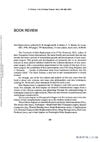 26 citations,
January 2019 in “Expert Opinion on Investigational Drugs”
26 citations,
January 2019 in “Expert Opinion on Investigational Drugs” New treatments for hair loss show promise, but more research is needed to confirm their safety and effectiveness.
[object Object]  April 2024 in “Expert opinion on emerging drugs”
April 2024 in “Expert opinion on emerging drugs” New treatments for male hair loss are being explored to improve effectiveness and reduce side effects.
 100 citations,
April 2010 in “Expert Opinion on Pharmacotherapy”
100 citations,
April 2010 in “Expert Opinion on Pharmacotherapy” Hair loss in men treated best with early medication or transplant, new treatments researched.
 36 citations,
November 2018 in “American Journal of Clinical Dermatology”
36 citations,
November 2018 in “American Journal of Clinical Dermatology” Alopecia is linked to various health and mental conditions, impacts life quality, and needs medical attention beyond its cosmetic effects.

Most American men experience hair loss by age 50, with limited effective treatments available and new options not expected soon.
 November 1997 in “Postgraduate Medicine”
November 1997 in “Postgraduate Medicine” Robert T. Leonard Jr. disagrees with Max Rubin's negative views on hair loss treatment, advocating for hormonal tests in women and supporting the use of medications and surgery for androgenetic alopecia.
 May 2014 in “Hair transplant forum international”
May 2014 in “Hair transplant forum international” Scalp tools, tracking progress, targeting scalp inflammation, and avoiding certain hair treatments can improve female hair loss treatment.
[object Object]  January 1997 in “Journal of Toxicology-cutaneous and Ocular Toxicology”
January 1997 in “Journal of Toxicology-cutaneous and Ocular Toxicology” The book "Hair Replacement" is a detailed guide on hair transplant and treatments, useful for surgeons and clinicians.
 83 citations,
July 2008 in “Current Opinion in Chemical Biology”
83 citations,
July 2008 in “Current Opinion in Chemical Biology” The document concludes that understanding sulfation biology is crucial for creating treatments due to its importance in biological functions and disease.
 62 citations,
April 2004 in “Expert Opinion on Pharmacotherapy”
62 citations,
April 2004 in “Expert Opinion on Pharmacotherapy” Finasteride effectively treats male pattern baldness, improving hair growth and density.

Scalp cooling is recommended to prevent chemotherapy-induced hair loss, but no effective drugs are available.
 14 citations,
January 2019 in “Journal of Natural Medicines”
14 citations,
January 2019 in “Journal of Natural Medicines” Chaga mushrooms contain compounds that may promote hair growth better than common treatments.
 56 citations,
January 2021 in “Clinical and Experimental Medicine”
56 citations,
January 2021 in “Clinical and Experimental Medicine” The document concludes that while there are various treatments for Alopecia Areata, there is no cure, and individualized treatment plans are essential due to varying effectiveness.
October 2022 in “Our Dermatology Online” The Trust tonic is more effective than minoxidil for treating hair loss.
January 2021 in “Medical research archives” The 5% minoxidil lotion without propylene glycol is effective, well-tolerated, and cosmetically acceptable for hair loss.
 31 citations,
March 2017 in “Journal of The American Academy of Dermatology”
31 citations,
March 2017 in “Journal of The American Academy of Dermatology” Some breast cancer patients developed permanent hair loss after chemotherapy and hormonal therapy, showing patterns similar to common baldness and alopecia areata.
 61 citations,
January 2019 in “American Journal of Clinical Dermatology”
61 citations,
January 2019 in “American Journal of Clinical Dermatology” The cause of Frontal Fibrosing Alopecia is unclear, diagnosis involves clinical evaluation and various treatments exist, but their effectiveness is uncertain.
 1 citations,
December 2016 in “Trichology and cosmetology:”
1 citations,
December 2016 in “Trichology and cosmetology:” Panax ginseng might help with hair growth and has fewer side effects than synthetic treatments.
 April 2023 in “Journal of Cutaneous and Aesthetic Surgery”
April 2023 in “Journal of Cutaneous and Aesthetic Surgery” Using different hair loss treatments at various times can improve results and reduce side effects for people with chronic hair loss.
 19 citations,
August 2000 in “International Journal of Dermatology”
19 citations,
August 2000 in “International Journal of Dermatology” Minoxidil and finasteride can slow or halt hair loss, but may have side effects.
5 citations,
April 2022 in “IntechOpen eBooks” Nanoemulgel is a better way to deliver drugs through the skin for various conditions.
 1 citations,
April 2009 in “Cochrane Database of Systematic Reviews”
1 citations,
April 2009 in “Cochrane Database of Systematic Reviews” Review finds no permanent solution for female hair loss.
 1 citations,
April 2022 in “The Egyptian Journal of Hospital Medicine ”
1 citations,
April 2022 in “The Egyptian Journal of Hospital Medicine ” Fractional laser therapy may help regrow hair in alopecia areata.
 8 citations,
January 2020 in “Skin Pharmacology and Physiology”
8 citations,
January 2020 in “Skin Pharmacology and Physiology” Caffeine improves hair growth, thickness, and reduces shedding.
 24 citations,
May 2013 in “Drug Design Development and Therapy”
24 citations,
May 2013 in “Drug Design Development and Therapy” Multimodal minoxidil microemulsion is more effective in treating hair loss than minoxidil alone.
 3 citations,
May 2018 in “InTech eBooks”
3 citations,
May 2018 in “InTech eBooks” Animal models, especially mice, are essential for advancing hair loss research and treatment.
 18 citations,
January 2013 in “Postepy Dermatologii I Alergologii”
18 citations,
January 2013 in “Postepy Dermatologii I Alergologii” Puberty often causes skin issues like acne and excessive sweating, and treatments require patience as results may vary.
 5 citations,
January 2018 in “Skin appendage disorders”
5 citations,
January 2018 in “Skin appendage disorders” Minoxidil base is preferred for hair loss treatment, but minoxidil sulfate may be an alternative for unresponsive patients.
 November 2023 in “Expert Opinion on Pharmacotherapy”
November 2023 in “Expert Opinion on Pharmacotherapy” Finasteride and dutasteride are effective in treating male hair loss but can cause sexual side effects and birth defects.
 72 citations,
December 2012 in “Expert Opinion on Drug Delivery”
72 citations,
December 2012 in “Expert Opinion on Drug Delivery” Niosomes are promising for skin drug delivery, offering benefits like improved drug penetration and stability.



























